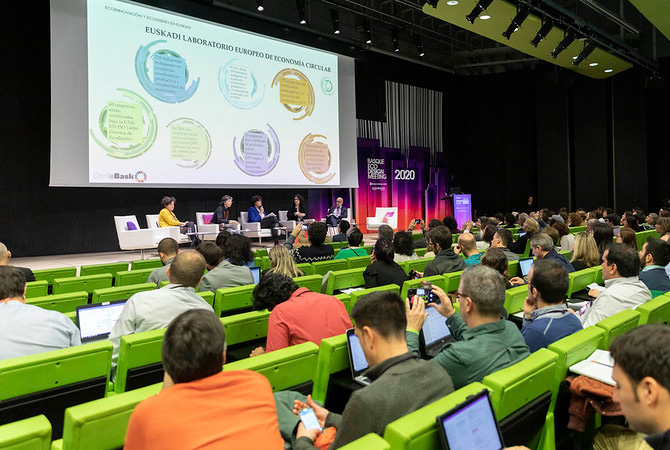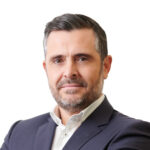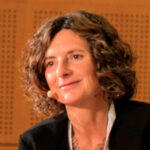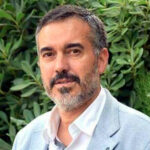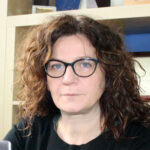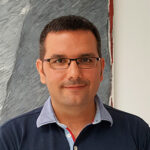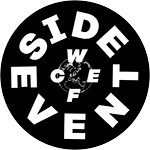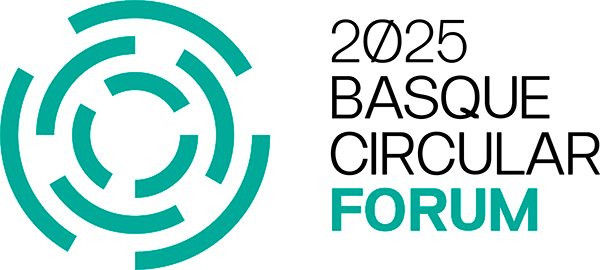
Programme
-
8am - 9am
Accreditation -
9am - 10am
Packaging (PS1-1)
PS1-1

2nd April 2025
9am – 10am
Room 0E
Packaging
Each EU resident generated 189 kg of packaging waste in 2021. In ten years, the amount has increased by more than 20%. In order to reverse this situation, the legal framework on packaging is constantly evolving. Following the approval of the Royal Decree on Packaging and Packaging Waste in 2023, the new European Packaging and Packaging Waste Regulation is expected to be brought in at the end of 2024. Its main objective is to reduce packaging waste, encourage reuse and refill, and ensure that all packaging is recyclable by 2030.
This session will analyse the new legal requirements and showcase success stories of leading companies that have improved their packaging.
 Mº Belén García Fernández
Director at PACKNET, Packaging Technology Platform
Mº Belén García Fernández
Director at PACKNET, Packaging Technology Platform
 Cristina Rodríguez Domínguez
Sustainability Manager at Eroski
Cristina Rodríguez Domínguez
Sustainability Manager at Eroski
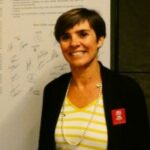 Arantza Madariaga
Director at ELIKA, Basque Foundation for Agri-food Safety
Arantza Madariaga
Director at ELIKA, Basque Foundation for Agri-food Safety
 Sonia Albein Urios
AIMPLAS Circular Economy and Environmental Manager
Sonia Albein Urios
AIMPLAS Circular Economy and Environmental Manager
 Rafael Miguel
Head of Recycled Market and Circular Economy at GAIKER
Rafael Miguel
Head of Recycled Market and Circular Economy at GAIKER
 Moderator:
Sara Aguado Saiz
Circular economy technician at Ihobe, Environmental Management Agency of the Basque Government
Moderator:
Sara Aguado Saiz
Circular economy technician at Ihobe, Environmental Management Agency of the Basque Government
Textile (PS1-2)
PS1-2

2nd April 2025
9am - 10am
Room 0D
Textile
Europeans consume an average of almost 26 kg of textiles each year and discard around 11 kg. Used clothes can be exported outside the EU, but the majority (87%) are incinerated or landfilled.
The rise of fast-fashion has been key in the increase in consumption. To reverse this situation, in March 2022, the European Commission presented a new strategy to make textiles more durable, repairable, reusable and recyclable, to address fast fashion and to stimulate innovation in the sector.
The new strategy includes new green design requirements, clearer consumer information and calls on companies to take responsibility and act to minimise their impact.
 Juan Ramón Meléndez Agudín
General Manager of RE-VISTE
Juan Ramón Meléndez Agudín
General Manager of RE-VISTE
 Pilar Chiva Rodríguez
Director of the Circular Economy Area of the Government of Catalonia
Pilar Chiva Rodríguez
Director of the Circular Economy Area of the Government of Catalonia
 Hector Viniegra
Developing circularity business at Tecnalia
Hector Viniegra
Developing circularity business at Tecnalia
 Eduardo Uribesalgo
Co-founder Director for Innovation and Sustainability at the Ternua Group
Eduardo Uribesalgo
Co-founder Director for Innovation and Sustainability at the Ternua Group
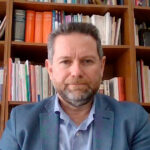 Pedro Carrasco
International Relations Team at Koopera
Pedro Carrasco
International Relations Team at Koopera
 Moderator:
Ana Mezo Carro
Project Manager at Ihobe, Environmental Management Agency. Basque Government
Moderator:
Ana Mezo Carro
Project Manager at Ihobe, Environmental Management Agency. Basque Government
Side event BUILD:INN (E1-1)
E1-1

2nd April 2025
9am - 10am
Room 0A
BUILD:INN: What Did Not Work Until It Did: Reflections on and Lessons Learnt from Circular Innovation Processes in the Construction Industry
During this session, representatives of five entities will share real experiences of projects that, initially, faced difficulties in terms of sustainability and the circular economy. Their accounts will show how they overcame the obstacles and transformed the challenges into innovative solutions. The event offers an opportunity to discover the lessons learnt from the errors, along with the strategies that allowed them to adapt and improving the projects, thus contributing to a more sustainable future.
PAPERS:
Introduction
 Izaro Irusta
Circular Economy and Sustainability Project Manger at Build Inn
Izaro Irusta
Circular Economy and Sustainability Project Manger at Build Inn
 Ainhoa Gonzalez
Environmental Strategy Manager at the Campezo Group and partner of Eje&Con: Spanish Association of Women Executives and Board Members
Ainhoa Gonzalez
Environmental Strategy Manager at the Campezo Group and partner of Eje&Con: Spanish Association of Women Executives and Board Members
Oreka Bioarkitektura
Viuda de Sainz
Cidark
EHU/UPV and Asfaltos Uribe
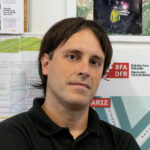 Heriberto Perez
Full University Professor at the Department of Mechanical Engineering of the UPV/EHU
Heriberto Perez
Full University Professor at the Department of Mechanical Engineering of the UPV/EHU
 Miriam Uribe Calleja
Chief ESG-Health and Safety & Compliance Officer
Miriam Uribe Calleja
Chief ESG-Health and Safety & Compliance Officer
GZS
Closing
Side event WEELOOP (E1-2)
E1-2

2nd April 2025
9am - 10am
Room 0C
WEELOOP: A New WEEE Holistic Management System Based on Circular Economy Models
In this context, the WEEE-Loop project is an innovative initiative that seeks to show the technological potential to increase the rates of reusing household appliances. By means of the selective recovery of pieces and components, WEEE-Loop promotes their reintroduction in the value chain, endorsed by the Circpass circularity certificate.
This side event at the Basque Circular Summit will explore how WEEE-Loop is transforming electronic waste management, fostering the circular economy and contributing to a more sustainable future.
PAPERS:
Context/Sectoral challenge/opportunity identified Copreci which led it to promote this LIFE project
CIRCULAR REPLAY
ECOLEC
EMAÚS
Q&A
-
10:30am - 11:30am
Opening: from the european green deal to the new clean industrial deal (PL1-1)
PL1-1

2nd April 2025
10:30am – 11:30am
Room 0B
Opening: from the european green deal to the new clean industrial deal
In 2020, the European Commission launched the "European Green Deal", under which more than 130 new legal texts have been developed, which aim to make Europe a more circular continent.
With the new European Parliament that emerged from the last elections, a period is opening that will be marked by the full implementation of the measures in these legal texts, as well as the development of a new "Clean Industrial Deal" and the future "European Circular Economy Act". This session will analyse this global framework and the role that companies and institutions must play to bring together competitiveness and circularity.
-
11:30am - 12pm
Coffee break -
12:15pm - 1:15pm
Critical raw materials (PS1-3)
PS1-3

2nd April 2025
12:15pm – 13:15pm
Room 0E
Critical raw materials
Economic relevance and supply risk drive the definition of the European list of 34 critical raw materials referred to in Regulation 2024/1252 establishing a framework to ensure a secure and sustainable supply of critical raw materials, officially published in April 2024.
Of these, half are strategic (including aluminium and copper), as they are key for the energy and digital transition. The new European regulation aims to reduce dependence on these metals and minerals and, in turn minimise the environmental footprint through ecodesign, R&D&I and recycling, a challenge that advanced companies are already addressing.
 Macarena Larrea
Researcher at the Energy and Environment Lab at Orkestra, Basque Institute of Competitiveness
Macarena Larrea
Researcher at the Energy and Environment Lab at Orkestra, Basque Institute of Competitiveness
 Ixone Urruela
Product Sustainability Leader at Arteche
Ixone Urruela
Product Sustainability Leader at Arteche
 Luis Tercero Espinoza
Fraunhofer Raw Materials Business Unit Coordinator
Luis Tercero Espinoza
Fraunhofer Raw Materials Business Unit Coordinator
 Raquel Ferret
Business Development Director at CIC Energigune
Raquel Ferret
Business Development Director at CIC Energigune
 Jon Solis
Supply Chain Director at the Orkli Group
Jon Solis
Supply Chain Director at the Orkli Group
 Lucia Unamunzaga
Environment and Sustainability Coordinator at AZTERLAN
Lucia Unamunzaga
Environment and Sustainability Coordinator at AZTERLAN
 Moderator:
Ander Elgorriaga Kunze
Ecoinnovation Manager at Ihobe, the Basque Government's Public Environmental Management Agency
Moderator:
Ander Elgorriaga Kunze
Ecoinnovation Manager at Ihobe, the Basque Government's Public Environmental Management Agency
Construction materials (PS1-4)
PS1-4

2nd April 2025
12:15am – 13:15am
Room 0D
Construction materials
The European construction sector plays a key role in the economy. It is made up of 3.4 million companies, which generate around 9% of the EU's gross domestic product and provide 18 million direct jobs. At the same time, the industry also produces construction and demolition waste (CDW), which accounts for 25-30% of all waste generated in the EU, making it one of the most significant waste streams.
To improve the sustainability of buildings and construction materials, new tools such as the Construction Products Regulation (CPR), or the Levels System are emerging. This session will analyse the current situation and new trends in the sector.
 Iñigo Vegas
Next Construction’ Business Area Director at Tecnalia
Iñigo Vegas
Next Construction’ Business Area Director at Tecnalia
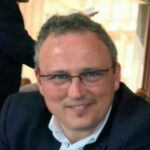 Raul Crespo
R&D& Manager at FYM-Heidelberg Materials Hispania
Raul Crespo
R&D& Manager at FYM-Heidelberg Materials Hispania
 Jose Manuel Baraibar
Innovation and Technical Director at Viuda de Sainz
Jose Manuel Baraibar
Innovation and Technical Director at Viuda de Sainz
 Marisol Barral
Head of R&D at Grupo Campezo and Head of Product Quality Control at Asfaltia
Marisol Barral
Head of R&D at Grupo Campezo and Head of Product Quality Control at Asfaltia
 Alfons Ventura
Green Building Council Spain – GBCe Technical Area
Alfons Ventura
Green Building Council Spain – GBCe Technical Area
 Moderator:
Aitor Saez de Cortazar Junguitu
Waste Project Technician at Ihobe, a Public Environmental Management Company. Basque Government
Moderator:
Aitor Saez de Cortazar Junguitu
Waste Project Technician at Ihobe, a Public Environmental Management Company. Basque Government
Side event Catalonia (E1-3)
E1-3

2nd April 2025
12:15am – 13:15am
Room 0C
Circular Catalonia: How is the circular economy progressing in Catalonia?
Since the Catalan Circular Economy Roadmap (FRECC) was approved in 2024, different actions have been rolled out to drive the transformation of the Catalan economy and society towards a more circular model. During this side event, representatives of the Catalan administration and business sector will consider the current status of this plan, along with the key actions that have been implement, with the aim of sharing experiences and seeking synergies beyond Catalonia.
PAPERS:
Welcome
The Catalan Circular Economy Roadmap
Supporting Companies in the Transition to the Circular Economy: Subsidies and aREca (Catalan Waste Agency)
The Catalan Ecodesign Award
Catalan Waste Cluster (CREC)
The New Catalan Industrial Symbiosis Platform
Questions and Discussion
Side event AZTI (E1-4)
E1-4

2nd April 2025
12:15am – 13:15am
Room 0A
AZTI: Eco-innovation in the Food Chain
The AZTI side event will analyse the factors that analyse the sustainability of the food chain, by considering key data and real solutions based on the circular economy. From applicable strategies to success stories, this event seeks to inspire and guide the sector's professionals in the transition towards a more efficient and responsible model.
PAPERS:
6 Reasons to Implement the Circular Economy in the Agrifood Sector and 6 Circular Economy Strategies
Examples of New Circular Economy Models based on Using Food Byproducts as New Secondary Raw Materials. Euskobazza and Zambrana Case Studies
Reducing and Effective Communication of the Environmental Impact of the Food Industries. ARTOMAÑA and Kaiku Case Studies
-
1:45pm - 3pm
Lunch -
3:30pm - 4:30pm
Future challenges of the circular economy in Europe (PL1-2)
PL1-2

2nd April 2025
15:30pm – 16:30pm
Room 0B
Future challenges of the circular economy in Europe
In early 2025, the European Commission has defined a new sustainability roadmap, based on two fundamental milestones: the new Competitiveness Compass and the new Clean Industrial Deal. In addition, there is the proposed EU Omnibus Package to simplify sustainability requirements. This at a time when the European Environment Agency has just published the monitoring report on the achievement of the EU climate, circularity and sustainability goals for 2030, set out in the 8th EU Environmental Action Programme.
This plenary session will analyse the new circular economy challenges for the future of Europe and how they are going to be embodied in the different levels of government.
 Mikel Jauregi Letemendia
Minister for Industry, the Energy Transition and Sustainability, Basque Government
Mikel Jauregi Letemendia
Minister for Industry, the Energy Transition and Sustainability, Basque Government
 Janez Potocnik
Co-chair UNEP IRP, Co-funder STH, former European Commissioner
Janez Potocnik
Co-chair UNEP IRP, Co-funder STH, former European Commissioner
 Alejandro Dorado Nájera
Commissioner for the Circular Economy. Ministry for the Ecological Transition and Demographic Challenge. Government of Spain
Alejandro Dorado Nájera
Commissioner for the Circular Economy. Ministry for the Ecological Transition and Demographic Challenge. Government of Spain
 Moderator:
Irantzu Allende Fernández de Eribe
Deputy Minister of Energy Transition of the Department of Industry, Energy Transition and Sustainability, Basque Government
Moderator:
Irantzu Allende Fernández de Eribe
Deputy Minister of Energy Transition of the Department of Industry, Energy Transition and Sustainability, Basque Government
-
5pm - 6pm
Ecodesign regulation and digital product passport (PS1-5)
PS1-5

2nd April 2025
17:00pm – 18:00pm
Room 0E
Ecodesign regulation and digital product passport
In June 2024, Regulation (EU) was finally published; it establishes a framework for the setting of ecodesign requirements for sustainable products, and a framework to set ecodesign requirements for specific product groups to improve their circularity, energy performance and other environmental sustainability aspects.
It covers all categories of physical goods placed on the EU market, except for food, animal feed and medicinal products. The European Commission has until 19 April 2025 to establish a work plan including the time lines to establish the ecodesign requirements for those products on the priority group list.
The digital product passport is an information system to record, process and share information electronically related to the sustainability of products within supply chain companies, authorities and consumers. It is one of the measures envisaged in different legal texts and which are going to mandatorily affect a large number of products, including components and intermediate products.
This session will analyse the application status of the digital product passport in the different sectors, its obligations and limitations, along with success stories of application and reporting in different value chains.
 Juan Carlos Alonso
PProject Manager at 23 de setembre
Juan Carlos Alonso
PProject Manager at 23 de setembre
 Iván Gutiérrez Agüero
DLT and Cybersecurity Manager at TECNALIA
Iván Gutiérrez Agüero
DLT and Cybersecurity Manager at TECNALIA
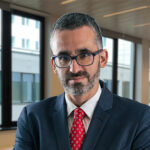 Aitor Aragon Basabe
Responsible for sustainability and digitalization for the construction industry at UNE
Aitor Aragon Basabe
Responsible for sustainability and digitalization for the construction industry at UNE
 Jorge de Antonio Prieto
Circular Replay CEO
Jorge de Antonio Prieto
Circular Replay CEO
 Judit Rodríguez Manotas
Project Manager. Sustainable Production and Consumption at the European Commission's Joint Research Centre (JRC)
Judit Rodríguez Manotas
Project Manager. Sustainable Production and Consumption at the European Commission's Joint Research Centre (JRC)
 Ane Velasco Ibarrondo
Ecodesign Manager at Orona
Ane Velasco Ibarrondo
Ecodesign Manager at Orona
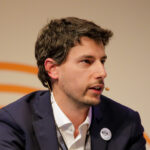 Moderator:
Iñigo Aizpuru Llanos
Circular Economy Project Manager at Ihobe, Environmental Management Agency of the Basque Government
Moderator:
Iñigo Aizpuru Llanos
Circular Economy Project Manager at Ihobe, Environmental Management Agency of the Basque Government
Right to repair (PS1-6)
PS1-6

2nd April 2025
5pm – 6pm
Room 0D
Right to repair
Right to repair is a policy that obliges manufacturers to provide citizens and repair companies with all the tools, parts and manuals necessary to repair a product. Its implementation takes place in the framework of the new Directive 2024/1799 of 13th June 2024, establishing common rules to foster the repair of goods.
This new directive, along with new product labelling schemes, will make it easier for consumers to choose to repair a product rather than replace it, increase the accessibility, transparency and attractiveness of repair services and develop new business activities in relation to repairs.
 Sofía Garín
Senior Project Manager at Inèdit
Sofía Garín
Senior Project Manager at Inèdit
 Gorka Erlaiz Cotelo
IT Manager at SARETEKNIKA. Servicios Globales de Posventa, S. Coop.
Gorka Erlaiz Cotelo
IT Manager at SARETEKNIKA. Servicios Globales de Posventa, S. Coop.
 Ane Salaberria
Environmental Manager at EMAUS Gizarte Fundazioa
Ane Salaberria
Environmental Manager at EMAUS Gizarte Fundazioa
 José Alberto Eguren
Research professor at the Mechanics, Organisation and Industrial Production Department at Mondragón University
José Alberto Eguren
Research professor at the Mechanics, Organisation and Industrial Production Department at Mondragón University
 Josetxu Peréz Larrazabal
Associate professor at Deusto University, lecturing and project management at the San Viator Centre's Innovation Department
Josetxu Peréz Larrazabal
Associate professor at Deusto University, lecturing and project management at the San Viator Centre's Innovation Department
 Jon Curutchet
Head of Supply Chain & Sustainability at SKFK
Jon Curutchet
Head of Supply Chain & Sustainability at SKFK
 Diego Malo Orbañanos
Waste Management Technician, Vitoria-Gasteiz City Council
Diego Malo Orbañanos
Waste Management Technician, Vitoria-Gasteiz City Council
 María Fernández Peral
Environmental management technician for companies
María Fernández Peral
Environmental management technician for companies
 Alex Peláez Astorkia
Director General of the Environment of the Provincial Council of Bizkaia
Alex Peláez Astorkia
Director General of the Environment of the Provincial Council of Bizkaia
 Eva Sevigne Itoiz
Head of the Navarra Circular Economy Agenda team at Navarra Environmental Management-Nafarroako Ingurumen Kudeaketa (GAN-NIK)
Eva Sevigne Itoiz
Head of the Navarra Circular Economy Agenda team at Navarra Environmental Management-Nafarroako Ingurumen Kudeaketa (GAN-NIK)
 Moderator:
Ana Mezo Carro
Project Manager at Ihobe, Environmental Management Agency. Basque Government
Moderator:
Ana Mezo Carro
Project Manager at Ihobe, Environmental Management Agency. Basque Government
Side event GAIKER (E1-5)
E1-5

2nd April 2025
5pm – 6pm
Room 0A
GAIKER: Recycling Complex Plastics and Composites. Towards an Effective Circular Economy: CÍCLICOM Innovation Ecosystem
CÍCLiCOM is a project to create an innovation ecosystem for the circularity of complex plastics and composites. Its main purpose is to bring onboard the key stakeholders of the national production sector in the sphere of complex plastics and composites, and in the areas related to the technologies to treat, recycle and use waste and products at the end of their life cycle. The ecosystem seeks to provide the business sector with access to state-of-the-art knowledge and technology, by setting up and offering an interconnected network of infrastructures and services. The aim is to bolster training, research, testing and the validation of new technologies, by driving the transition towards a circular economy model focused on those materials.
PAPERS:
Recycling Complex Plastics and Composites. Towards an Effective Circular Economy: CÍCLICOM Innovation Ecosystem
Ecoinnovation in the area of recycled and recyclable plastics in the Basque Country. The BRTA approach.
Panel / Q&As
Side event UPV / EHU (E1-6)
E1-6

2nd April 2025
5pm – 6pm
Room 0C
Circular ecosystem at the UPV/EHU: training, research and collaboration opportunities with the Basque public university
This event will showcase this circular ecosystem of the UPV/EHU with the goal of establishing connections between training, research and innovation capacities among the delegates at BCS2025 to bolster and implement collaborative models between the UPV/EHU and other stakeholders to shift to more circular economic models.
PAPERS:
POST-GRADUATE EDUCATION IN THE CIRCULAR ECONOMY
Master's Degree on the Circular Economy: Application to Business, Master's Degree in Environmental Management and Engineering, MBAe3 Entrepreneurship, Smart Cities and Communities Erasmus Mundus Master's Degree
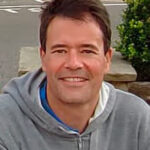 Rikardo Minguez
Life Cycle Thinking Group at Euskal Herriko Unibertsitatea (UPV/EHU)
Rikardo Minguez
Life Cycle Thinking Group at Euskal Herriko Unibertsitatea (UPV/EHU)
 Maite de Blas
Associate Professor. Bilbao School of Engineering (UPV/EHU). Member of the Academic Committee of the Master's Degree in Environmental Management and Engineering
Maite de Blas
Associate Professor. Bilbao School of Engineering (UPV/EHU). Member of the Academic Committee of the Master's Degree in Environmental Management and Engineering
 Maria Saiz Santos
Associate professor of entrepreneurship and business startup at the Business and Economics Faculty at the UPV/EHU. ECISE UPV/EHU Group LR
Maria Saiz Santos
Associate professor of entrepreneurship and business startup at the Business and Economics Faculty at the UPV/EHU. ECISE UPV/EHU Group LR
 Jon Teres
Full Professor at the Department of Energy Engineering and a member of the Academic Committee for the Master's Degree in SMACCs
Jon Teres
Full Professor at the Department of Energy Engineering and a member of the Academic Committee for the Master's Degree in SMACCs
RESEARCH IN THE CIRCULAR ECONOMY
Life Cycle Thinking, Sustainable PRocess ENgineering (SUPREN), Sustainable economic development of the Company
 Erlantz Lizundia
Professor at the Department of Graphic Expression and Engineering Projects, and Lead Researcher of the Life Cycle Thinking Group at the University of the Basque Country (UPV/EHU)
Erlantz Lizundia
Professor at the Department of Graphic Expression and Engineering Projects, and Lead Researcher of the Life Cycle Thinking Group at the University of the Basque Country (UPV/EHU)
 Blanca Maria Caballero
Professor at the Bilbao School of Engineering. Researcher in waste treatment (UPV/EHU)
Blanca Maria Caballero
Professor at the Bilbao School of Engineering. Researcher in waste treatment (UPV/EHU)
 German Arana Landín
Co-LR of the Technology for Business, Society and Sustainability research group
German Arana Landín
Co-LR of the Technology for Business, Society and Sustainability research group
TRANSFER IN THE CIRCULAR ECONOMY
Repsol Foundation Energy Transition Learning Centre – Circular Economy Circular Economy Business University Learning Centre of Gipuzkoa Provincial Government
 Ion Aguirre
Full Professor at the Department of Chemical Engineering and the Environment and head of the Repsol Foundation Learning Centre for the Energy Transition on the 'Circular Economy' at the Bilbao School of Engineering
Ion Aguirre
Full Professor at the Department of Chemical Engineering and the Environment and head of the Repsol Foundation Learning Centre for the Energy Transition on the 'Circular Economy' at the Bilbao School of Engineering
 Cristina Peña
Full Professor at the Department of Chemical Engineering and the Environment. Head of the Circular Economy Business-University Learning Centre (Gipuzkoa Provincial Government) of the Gipuzkoa School of Engineering (UPV/EHU)
Cristina Peña
Full Professor at the Department of Chemical Engineering and the Environment. Head of the Circular Economy Business-University Learning Centre (Gipuzkoa Provincial Government) of the Gipuzkoa School of Engineering (UPV/EHU)
-
6pm
End of sessions -
6pm - 7pm
Networking coffee
-
8am - 9am
Accreditation -
9am - 10am
Circular municipalities (PS2-1)
PS2-1

3rd April 2025
9am - 10am
Room 0D
Circular municipalities
The shift from a linear economy to a circular economy is currently positioned as a strong ally in reducing environmental impacts and external dependence on resources. The role of municipalities inmaking this paradigm shift a reality is key, on the one hand, because of their proximity to citizens, which is of great importance when it comes to raising awareness of the importance of the circular economy and applying sustainable habits and, on the other hand, due to the competences of local or supra-municipal authorities in areas such as waste, energy, mobility, urban planning, etc.
This forum will analyse European initiatives such as the CCRI - Circular Cities and Regions Initiative and the Circular City Centre - C3 and their applicability in our municipalities.
 Ander Eizagirre
OECD Political Analyst
Ander Eizagirre
OECD Political Analyst
 Jordi Pascual
Manager of the Cities at Circle Economy Programme
Jordi Pascual
Manager of the Cities at Circle Economy Programme
 Oihana Eizmendi
Innovation Ecosystems Manager at Bilbao Ekintza, Bilbao City Council's Economic Development Agency
Oihana Eizmendi
Innovation Ecosystems Manager at Bilbao Ekintza, Bilbao City Council's Economic Development Agency
 Nestor Gisasola
Circular Economy Expert at ICLEI Europe
Nestor Gisasola
Circular Economy Expert at ICLEI Europe
 Juncal Ibeas Larrañaga
Head of the Business Service of the Economic Promotion Department at Vitoria-Gasteiz City Council
Juncal Ibeas Larrañaga
Head of the Business Service of the Economic Promotion Department at Vitoria-Gasteiz City Council
 Begoña Beobide
Iraurgi Berritzen Director
Begoña Beobide
Iraurgi Berritzen Director
 Moderator:
Iñigo Aizpuru Llanos
Circular Economy Project Manager at Ihobe, Environmental Management Agency of the Basque Government
Moderator:
Iñigo Aizpuru Llanos
Circular Economy Project Manager at Ihobe, Environmental Management Agency of the Basque Government
CSRD directive (PS2-2)
PS2-2

3rd April 2025
9am - 10am
Room 0E
CSRD directive
The European Union is boosting corporate transparency with the implementation of the new Corporate Sustainability Reporting Directive (CSRD), which will be mandatory from 2025. This directive significantly broadens the scope of sustainability reporting obligations to a greater number of companies, including both large and medium-sized companies, and sets new standards for the disclosure of various environmental, social and governance (ESG) indicators.
In this session, and with the help of affected companies and experts in the field, we will analyse the challenges of this directive and the importance of working on corporate transparency as a factor to increase competitiveness and investor relations.
 Iñigo Zavala Ortiz de la Torre
Deputy Chairman of the CEOE Corporate Social Responsibility Committee
Iñigo Zavala Ortiz de la Torre
Deputy Chairman of the CEOE Corporate Social Responsibility Committee
 Marta Cámara
Sustainability Senior Manager at Forética
Marta Cámara
Sustainability Senior Manager at Forética
 Iñigo Loizaga
Director of Engineering, Quality and Environment at CIE Automotive
Iñigo Loizaga
Director of Engineering, Quality and Environment at CIE Automotive
 Ismael Aznar Cano
Partner in charge of Environment and Climate at PwC Tax&Legal Spain
Ismael Aznar Cano
Partner in charge of Environment and Climate at PwC Tax&Legal Spain
 Ibon Antero
Sustainability Manager at MONDRAGON
Ibon Antero
Sustainability Manager at MONDRAGON
 Belen Gonzalez Villajos
Associate Director of Sustainability, ITP Aero
Belen Gonzalez Villajos
Associate Director of Sustainability, ITP Aero
 Moderator:
Ana Mezo Carro
Project Manager at Ihobe, Environmental Management Agency. Basque Government
Moderator:
Ana Mezo Carro
Project Manager at Ihobe, Environmental Management Agency. Basque Government
Side event MONDRAGON Corporation (E2-1)
E2-1

3rd April 2025
9am - 10am
Room 0A
MONDRAGON Corporation: Sustainability Strategies
This side event is designed to show how MONDRAGON Corporation is leading the transition towards a circular economy and sustainability model. By means of a combination of corporate strategies, success stories in cooperative and innovative tools, the event will highlight the specific actions that are transforming the way that the companies of the group operate, collaborate and create sustainable value.
The event will act as a platform to inspire other organisations, explore new alliances and share key knowledge on how to implement sustainable and circular strategies in a scalable way.
PAPERS:
Welcome and Introduction
Sustainable MONDRAGON: Instruments to Bolster the Group's Sustainability
Methodologies, Analytical Tools and Circular Indicators
 Daniel Justel
Coordinator of the Innovation in Industrial Design area, MGEP
Daniel Justel
Coordinator of the Innovation in Industrial Design area, MGEP
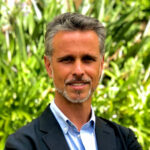 Daniel de la Torre
Replay Circular Business Development Director
Daniel de la Torre
Replay Circular Business Development Director
Clean and Ecoefficient Industrial Processes and Systems
 Ignacio Lasa
Project Coordinator at the Ondoan OHS and Environment Unit
Ignacio Lasa
Project Coordinator at the Ondoan OHS and Environment Unit
 Blanca Lekube
Researcher and project coordinator at Leartiker
Blanca Lekube
Researcher and project coordinator at Leartiker
New Circular Business Models
 Ainara Martinez
Coordinator of the "SyNC: Sustainability and Circular Businesses" research team at Enpresagintza / MIK
Ainara Martinez
Coordinator of the "SyNC: Sustainability and Circular Businesses" research team at Enpresagintza / MIK
 Unai de Vicente
Researcher of the SyNC (Sustainability and Circular Businesses) team at MIK / Mondragon University
Unai de Vicente
Researcher of the SyNC (Sustainability and Circular Businesses) team at MIK / Mondragon University
Questions from delegates
Side event Alboan (E2-2)
E2-2

3rd April 2025
9am - 10am
Room 0C
Alboan: 'What Your Mobile is Hiding' Digital Empowerment Workshop
During the Session, ALBOAN's contribution to the circular economy through its 'Mobiles for the Earth' initiative will be presented as an example of the global impact of our local actions. The spotlight will also be on its work for an alternative economy proposal by means of the COMPARTE initiative. Both are part of ALBOAN's cause of socio-environmental justice. Don't miss it!
PAPERS:
Welcome and Introduction
Towards Socio-Environmental Justice
Compare Network: For a More Human and Sustainable Economy
The 'Mobiles for the Earth' initiative and Conflict Free Technologies
Feedback and closing
-
10:30am - 11:30am
Sustainable finance (PL2-1)
PL2-1

3rd April 2025
10:30am – 11:30am
Room 0B
Sustainable finance
The move towards a circular society and economy is not alien to the world of finance. Sustainable finance means that environmental, social and governance factors are taken into account in the investment decision-making process. All these criteria are known as ESG criteria.
Sustainable finance enables the design of different financial products that promote sustainable development and seeks to balance profitability and sustainability. In this session we will analyse the role of financial institutions as drivers of a more circular economy in Europe.
 Lydia Navarro Velasco
Senior engineer at the Project Division of the European Investment Bank
Lydia Navarro Velasco
Senior engineer at the Project Division of the European Investment Bank
 Gemma Sanchez-Danes
Head of the EFRAG Sustainability Secretariat
Gemma Sanchez-Danes
Head of the EFRAG Sustainability Secretariat
 Arantza Larrauri Aranguren
Director of Financial Policy and Social Security. Basque Government
Arantza Larrauri Aranguren
Director of Financial Policy and Social Security. Basque Government
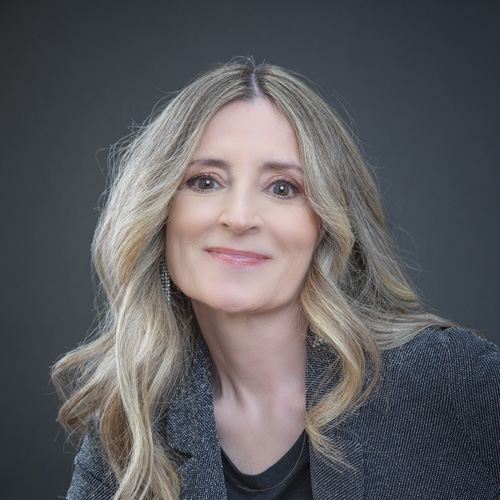 Lexuri Elorriaga Lekue
General Manager at BASQUEFIK, the Basque Country's Investment and Financial Cluster
Lexuri Elorriaga Lekue
General Manager at BASQUEFIK, the Basque Country's Investment and Financial Cluster
 Joseba Barandiaran
LABORAL Kutxa Financial Planning and Sustainability Director
Joseba Barandiaran
LABORAL Kutxa Financial Planning and Sustainability Director
 Maria Elisa Arroyo
Kutxabank ESG Manager
Maria Elisa Arroyo
Kutxabank ESG Manager
 Moderator:
José María Fernández Alcalá
Circular Economy Director at Ihobe, Environmental Management Agency. Basque Government
Moderator:
José María Fernández Alcalá
Circular Economy Director at Ihobe, Environmental Management Agency. Basque Government
Side event Koopera-Emaus (E2-3)
E3-2

3th April 2025
10:30am – 11:30am
Room 0C
Koopera-Emaus: 50 Years of the Basque Social Economy Model in Waste Management: Textile, Bulky, WEEE: Extended Producer Responsibility Challenges
We will address the challenges of implementing the SCRAP, highlighting how social entities are playing a crucial role in job creation and social inclusion, as a key player in waste management and striving for an economy that aspires to be circular and fair.
PAPERS:
OPENING AND PRESENTATION OF THE FRAMEWORK
Analysis of Textile Management in the Circular Economy. Impact of Textile Recycling and Reuse in Social and Environmental Terms.
Explanation of the Role of WEEE (Waste Electrical and Electronic Equipment) and its Management within SCRAP (Extended Producer Responsibility Collective System). Challenges and Opportunities for Placement Companies in this sSector.
Challenges for Collecting and Treating Bulky Waste. Suggested Improvements and Role of the Job Plaement Companies in the Bulky Waste Value Chain.
Overview of the Role of Placement Companies in Extended Producer Responsibility (EPR). Suggested Improvements for Greater Participation and to Ensure their Recognition
CLOSING AND FINAL REFLECTIONS
-
11:30am - 12pm
Coffee break -
12:15pm - 1:15pm
European waste framework (PS2-3)
PS2-3

3rd April 2025
12:15pm – 13:15pm
Room 0E
European waste framework
The EU generates more than 2.1 billion tonnes of waste per year. The data show that the amount of waste and how it is managed varies greatly between EU countries, but recycling has increased, while landfilling is decreasing.
To reduce waste and its impact on the environment, the EU has adopted ambitious targets on recycling and landfill and is working to improve different waste streams. The aim is to promote the shift towards a more sustainable model: the circular economy.
Furthermore, Europe is currently revising the Waste Framework Directive, which focuses particularly on food and textile waste. All of this will be analysed in this session.
 Alexander Boto Bastegieta
General Manager of Ihobe, Environmental Management Agency. Basque Government
Alexander Boto Bastegieta
General Manager of Ihobe, Environmental Management Agency. Basque Government
 Josu Bilbao Begoña
Deputy Minister for the Environment of the Basque Government
Josu Bilbao Begoña
Deputy Minister for the Environment of the Basque Government
 Margarita Ruiz Saiz-Aja
Deputy Director General for the Circular Economy of the Ministry for the Ecological Transition and Demographic Challenge. Spanish Government
Margarita Ruiz Saiz-Aja
Deputy Director General for the Circular Economy of the Ministry for the Ecological Transition and Demographic Challenge. Spanish Government
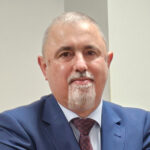 Julio Rodriguez Sesmero
National Business Director at FCC Ámbito
Julio Rodriguez Sesmero
National Business Director at FCC Ámbito
 Esteban Marijuan-Requeta
General Manager at Induplast
Esteban Marijuan-Requeta
General Manager at Induplast
 Moderator:
Olga Martín
General Manager at Aclima, Basque Environment Cluster
Moderator:
Olga Martín
General Manager at Aclima, Basque Environment Cluster
SME sustainability assessment (PS2-4)
PS2-4

3rd April 2025
12:15pm – 13:15pm
Room 0D
SME sustainability assessment
The growing importance of sustainability in companies' corporate strategies reflects a profound evolution in the way in which organisations are addressing their responsibility in the face of global challenges. Sustainability assessment therefore does not only affect large companies, but more and more SMEs have to respond to the sustainability demands of investors, financial institutions, customers and supplier companies.
Adapting this information to the structure of a SME and developing accompanying programmes that favour not only compliance but also positive evolution in sustainability will be the focus of this session.
 Francisco Campo Rámila
Founding Partner and Managing Director at Ingurumenaren Kideak Ingeniería, S.L.
Francisco Campo Rámila
Founding Partner and Managing Director at Ingurumenaren Kideak Ingeniería, S.L.
 María Garayo
Director at SOFIVER sostenibilidad y financiaciónDirector at SOFIVER sostenibilidad y financiación
María Garayo
Director at SOFIVER sostenibilidad y financiaciónDirector at SOFIVER sostenibilidad y financiación
 Xabier López de Landeta
Sustainability Manager at Ategi - MCC
Xabier López de Landeta
Sustainability Manager at Ategi - MCC
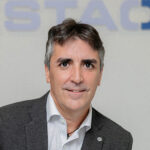 David Hernández Simón
HSEQ Director at Vicinay Sestao
David Hernández Simón
HSEQ Director at Vicinay Sestao
 Elsa María Rodríguez Vega
Sustainability Manager in the CAF supply chain
Elsa María Rodríguez Vega
Sustainability Manager in the CAF supply chain
 Moderator:
Ana Mezo Carro
Project Manager at Ihobe, Environmental Management Agency. Basque Government
Moderator:
Ana Mezo Carro
Project Manager at Ihobe, Environmental Management Agency. Basque Government
Side event Sutargi (E2-4)
E2-4

3rd April 2025
12:15pm – 13:15pm
Room 0A
Sutargi: INKLUSIVITY ECOSYSTEM: Collaboration to Drive Circular Businesses and Employability Opportunities
The circular economy requires a holistic approach that combines innovation, investment and social commitment. The collaboration is an opportunity to share knowledge, streamline resources and generate synergies in order to overcome the technological and economic barriers that would be difficult to address in isolation. For example, the alliance between the companies of the industrial sector and universities facilitates the development of new sustainable materials, driving both innovation and the training and recruitment of people at risk of exclusion.
Furthermore, companies and social entities working together allows circular business models to integrate social integration and employability strategies, by fostering access to jobs and inclusive economic development.
In short, when companies, institutions and social organisations join forces and share resources, the circular economy becomes a socially transformative and cost-effective business practice.
PAPERS:
Welcome and presentation of the side event
Inklusivity: The importance of collaboration to address the circular economy and social inclusion in emerging sectors
Success Stories: Companies and Circularity based on Impact Generating Collaborations. Each company will give a short presentation on how to address sustainability from a collaborative perspective based on a specific case
Construction and Industrial Sector
Agri-food sector
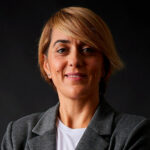 Nerea Filgueiras Caballero
ESG Manager at Elmubas Petfoodgroup
Nerea Filgueiras Caballero
ESG Manager at Elmubas Petfoodgroup
 Anaut Frantz Patterson
Algaloop CEO
Anaut Frantz Patterson
Algaloop CEO
 Yurre Peñagarikano
Urkome Manager
Yurre Peñagarikano
Urkome Manager
 Naroa Sarasua Rodriguez
Kaiku Founder and Project & Sustainability Manager
Naroa Sarasua Rodriguez
Kaiku Founder and Project & Sustainability Manager
Business-University Collaboration
Conclusions - Collaboration between Stakeholders of the Value Chain: Interdependent Sustainability Strategies
Side event Vitoria-Gasteiz City Council (E2-5)
E2-5

3rd April 2025
12:15pm – 13:15pm
Room 0C
Vitoria-Gasteiz City Council: Last-mile packaging in the retail sector, within the framework of the Vitoria-Gasteiz 2030 Circular Economy Strategy
The Vitoria-Gasteiz 2030 Circular Economy Strategy is going to be presented as a city instrument to act against the climate emergency, the loss of biodiversity and the depletion of resources. Furthermore, the results of one of the actions ensuring from the Strategy this year will be unveiled for the first time.
PAPERS:
Circular Economy Strategy in Vitoria-Gasteiz
Measures implemented and expected results around single-used plastic packaging distributed by the city's retail sector
 Maria Fernández
Business Environmental Management Technician at Vitoria-Gasteiz City Council
Maria Fernández
Business Environmental Management Technician at Vitoria-Gasteiz City Council
 Diego Malo
Waste Management Technician at Vitoria-Gasteiz City Council
Diego Malo
Waste Management Technician at Vitoria-Gasteiz City Council
Q&A and closing of session
-
1:45pm - 3:00pm
Lunch -
3:30pm - 4:30pm
The role of the consumer in the circular economy (PL2-2)
PL2-2

3rd April 2025
3:30pm – 4:30pm
Room 0B
The role of the consumer in the circular economy
Consumers have a great deal of power when it comes to driving more sustainable consumption patterns. Only with better informed, better protected and better equipped consumers will we be able to experience a real ecological transition.
For this reason, new instruments have been put in place, such as Directive 2024/825 of 28th February 2024 on consumer empowerment, which will be reinforced by the future directive on green claims. This session will look at how to strengthen the role of consumers in order to bring about a change in consumption patterns.
 Brenda Chávez
Solutions, data and investigative journalist specialised in sustainability
Brenda Chávez
Solutions, data and investigative journalist specialised in sustainability
 Daniel Arribas González
Director of General of Consumer Affairs at the Spanish Ministry of Social Rights, Consumer Affairs and 2030 Agenda
Daniel Arribas González
Director of General of Consumer Affairs at the Spanish Ministry of Social Rights, Consumer Affairs and 2030 Agenda
 Carmen Redondo Borge
Director of Institutional Relations at HISPACOOP
Carmen Redondo Borge
Director of Institutional Relations at HISPACOOP
 Alejandro Martínez Berriochoa
Eroski Director of Health and Sustainability
Alejandro Martínez Berriochoa
Eroski Director of Health and Sustainability
 Amaia Ortiz de Elguea
Uvesco Sustainability Manager
Amaia Ortiz de Elguea
Uvesco Sustainability Manager
 Izaskun Gómez Cermeño
Director of Commerce of the Basque Government
Izaskun Gómez Cermeño
Director of Commerce of the Basque Government
 Kiana Keshavarz
PHD Researcher at Tecnun
Kiana Keshavarz
PHD Researcher at Tecnun
 Moderator:
José María Fernández Alcalá
Circular Economy Director at Ihobe, Environmental Management Agency. Basque Government
Moderator:
José María Fernández Alcalá
Circular Economy Director at Ihobe, Environmental Management Agency. Basque Government
Side event Cluster Habic (E2-6)
E2-6

3rd April 2025
3:30pm – 4:30pm
Room 0A
Habic Cluster: Use and Applications of Recycled Material in the Equipment and Furniture Sector
The furniture and equipment sector has sought alternatives to reduce its environmental impact, one of the which is the use of recycled materials. The side event will consider the Indart3D (3D printing) experience using recycled material with furniture companies and will then feature the experience of the sector's companies with recycled materials.
-
5pm-6pm
Greenwashing (PS2-5)
PS2-5

3rd April 2025
5pm - 6pm
Room 0E
Greenwashing
The increase in legal and regulatory controls on sustainability claims, as well as the existence of a consumer who is increasingly demanding truthful and verified information on the sustainability of the products he/she purchases, can now result in real damage to the reputation and finances of organisations that engage in "greenwashing" practices.
The question we will address in this session is how can companies communicate their sustainability initiatives without risking being accused of greenwashing, with the consequent economic and reputational damage?
 Elisa Toscano Knörzer
Partner-Director at Grunver Sostenibilidad
Elisa Toscano Knörzer
Partner-Director at Grunver Sostenibilidad
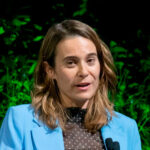 Cinta Bosch
AECOC Sustainability Manager
Cinta Bosch
AECOC Sustainability Manager
 Jon Kepa Izaguirre
R&D&I and Quality Director, A&B Laboratorios de Biotecnología
Jon Kepa Izaguirre
R&D&I and Quality Director, A&B Laboratorios de Biotecnología
 Raquel Zapatera
Technical Affairs, Operations and Economic Studies Manager at the Spanish Mineral Water Association (ANEABE)
Raquel Zapatera
Technical Affairs, Operations and Economic Studies Manager at the Spanish Mineral Water Association (ANEABE)
 Juana Farfán Montero
Professor and researcher in the area of Audiovisual Communication and Advertising at the Rey Juan Carlos University (URJC)
Juana Farfán Montero
Professor and researcher in the area of Audiovisual Communication and Advertising at the Rey Juan Carlos University (URJC)
 Moderator:
Sara Aguado Saiz
Circular economy technician at Ihobe, Environmental Management Agency of the Basque Government
Moderator:
Sara Aguado Saiz
Circular economy technician at Ihobe, Environmental Management Agency of the Basque Government
European taxonomy (PS2-6)
PS2-6

3rd April 2025
5pm - 6pm
Room 0D
European taxonomy
In the market for financial services and investment funds, investors and financiers are increasingly looking for investments and financing of companies and projects that can be classified as sustainable.
European taxonomy is a key part of the European Commission's regulatory development that aims to link the financial sector to the fulfilment of the decarbonisation and circular economy objectives of the European economy. This system is intended to redirect capital flows towards sustainable investments. To do so, a system of classification of economic activities is created for the purpose of determining the degree of environmental sustainability of these activities.
 Patxi Greño
Partner and Head Economist at Metroeconomica
Patxi Greño
Partner and Head Economist at Metroeconomica
 Jokin Amozarrain Altube
Laboral Kutxa sustainability technician
Jokin Amozarrain Altube
Laboral Kutxa sustainability technician
 Martín Sanz
Partner at NWorld
Martín Sanz
Partner at NWorld
 José Miguel Martínez
Iberdrola Sustainability Technician
José Miguel Martínez
Iberdrola Sustainability Technician
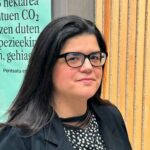 Isabel López Rubio
Sustainability Technician at Kutxabank
Isabel López Rubio
Sustainability Technician at Kutxabank
 Moderator:
Iñigo Aizpuru Llanos
Circular Economy Project Manager at Ihobe, Environmental Management Agency of the Basque Government
Moderator:
Iñigo Aizpuru Llanos
Circular Economy Project Manager at Ihobe, Environmental Management Agency of the Basque Government
Side event MU (E2-7)
E2-7

3rd April 2025
5pm - 6pm
Room 0C
HIREKIN: Driving Sustainable Industrial Entrepreneurship
If entrepreneurship is already not clearcut, it is even more challenging in the industrial sector requiring large investments, long time periods and demanding standards. The challenge gets even greater if you sign up to the circular economy and sustainability. Discover how HIREKIN helps entrepreneurs and cooperatives to transform prototypes into production in series, by addressing the financial and technologies difficulties without losing the green approach. A talk for people who want to turn challenges into competitive advantages in a transforming industrial environment. Not to be missed!
PAPERS:
Introduction, Context, HIREKIN Concept and Expected Impacts
Key Points of Sustainable Industrial (Intra-)Entrepreneurship and How HIREKIN Contributes in Practice
Difficulties, Challenges and Opportunities associated with Sustainable Industrial Entrepreneurship
Future Outlook and How to Get Involved
Questions and Answers
Side event ACLIMA (E2-8)
E2-8

3rd April 2025
5pm - 6pm
Room 0A
ACLIMA: Waste recovery infrastructures within the framework of the new European Circular Economy Law: an opportunity for the Basque Country
The main aim of the new Circular Economy Legislation being prepared by the European Commission is to reduce waste generation while encouraing its recovery and reuse, fostering efficient use of resources. The infrastructures to manage, recover and reuse waste are decisive in this context; they help to reduce our dependency on raw materials, minimise our environmental impact and are essential in the industrial decarbonisation process.
In the broader framework of the Clean Industrial Deal, European institution has decided to bolster the Green Transition by directly relating decarbonisation, the Circular Economy and the competitiveness of industry. The combination of both initiatives opens up new opportunities for the Basque Country to continue being a benchmark in the Circular Economy by means of initiatives such as developing clean technologies or new environmental infrastructures.
 Moderator:
Olga Martín
General Manager at Aclima, Basque Environment Clusterr
Moderator:
Olga Martín
General Manager at Aclima, Basque Environment Clusterr
 Nicolás Garcia Borreguero
Basque Government's Environmental Administration Director
Nicolás Garcia Borreguero
Basque Government's Environmental Administration Director
 Alex Pelaez
Environmental General Manager at Bizkaia Provincial Council
Alex Pelaez
Environmental General Manager at Bizkaia Provincial Council
 Rikardo Bueno
General Manager of the Basque Research and Technology Aliance - BRTA
Rikardo Bueno
General Manager of the Basque Research and Technology Aliance - BRTA
 Xabier Caño
Aclima Chair, Basque Environment Cluster
Xabier Caño
Aclima Chair, Basque Environment Cluster
-
6pm
End of sessions -
6pm - 7pm
Networking coffee
-
8am - 9am
Accreditation -
9am - 10am
Environmental assessment metrics and tools (PS3-1)
PS3-1

4th April 2025
9am - 10am
Room 0E
Environmental assessment metrics and tools
To work on environmental improvement, the first step is to measure. Environmental assessment with an organisational approach provides an overall diagnosis, identifies possible improvements and follows up towards environmental objectives. By applying the assessment to a product or service approach, it is possible to make design decisions aimed at reducing the environmental impact of the product or service from its conception: in other words, eco-design.
To facilitate this environmental assessment and address both motivating factors, Ihobe provides companies with a free computer tool that simplifies the process of assessing the environmental performance of organisations, products and services with a life cycle approach.
 Belen Viton
Head of Service at the General Subdirectorate for Climate Change Mitigation of the Spanish Office for Climate Change (OECC)
Belen Viton
Head of Service at the General Subdirectorate for Climate Change Mitigation of the Spanish Office for Climate Change (OECC)
 Encarni Prieto
Quality, Environment and Sustainability Manager at Viuda de Sainz
Encarni Prieto
Quality, Environment and Sustainability Manager at Viuda de Sainz
 Carmen Jaca
Professor and researcher at Tecnun
Carmen Jaca
Professor and researcher at Tecnun
 Saioa Ramos
Senior Researcher at the AZTI-BRTA Efficiency and Sustainability Division
Saioa Ramos
Senior Researcher at the AZTI-BRTA Efficiency and Sustainability Division
 Cecilia Dall´Acqua
Partner Strategy Sustainability Leader of the Deloitte Global Circular Economy HUB
Cecilia Dall´Acqua
Partner Strategy Sustainability Leader of the Deloitte Global Circular Economy HUB
 Moderator:
Iñigo Aizpuru Llanos
Circular Economy Project Manager at Ihobe, Environmental Management Agency of the Basque Government
Moderator:
Iñigo Aizpuru Llanos
Circular Economy Project Manager at Ihobe, Environmental Management Agency of the Basque Government
Circular business models (PS3-2)
PS3-2

4th April 2025
9am - 10am
Room 0D
Circular business models
Sustainable servitisation, represented by the transition from the traditional business model based on the manufacture and sale of the product to one based on pay for access to use, pay for access to outcome and retention of product value, implies a greater durability of the products but first of all requires the transformation of the existing business model.
This trend, which is not without its financial, operational, technological and commercial difficulties is now an opportunity more than ever thanks to advances in digitalisation, among others. This session will explore this strategy in depth, with the help of companies in our environment that are already applying this new business model.
 Joan Manuel F. Mendoza
Research Associate Professor at Ikerbasque and Director at the Industrial Sustainability and Circular Economy Research Group (ECSI)
Joan Manuel F. Mendoza
Research Associate Professor at Ikerbasque and Director at the Industrial Sustainability and Circular Economy Research Group (ECSI)
 Mikel Telleria
Copreci New Business Promoter and Coordinator of the European LIFE WEELoop project
Mikel Telleria
Copreci New Business Promoter and Coordinator of the European LIFE WEELoop project
 Javier Medina Antón
QiEUROPE CEO
Javier Medina Antón
QiEUROPE CEO
 Iñigo Ruiz de Apodaka
Project Director - Modernisation at CAF
Iñigo Ruiz de Apodaka
Project Director - Modernisation at CAF
 Oscar López
HSE & SCR Manager at Gamesa Gearbox (SIEMENS ENERGY)
Oscar López
HSE & SCR Manager at Gamesa Gearbox (SIEMENS ENERGY)
 Alex López
CEO of REVENANT Industrial & Ports Machinery
Alex López
CEO of REVENANT Industrial & Ports Machinery
 Moderator:
María García Flecha
Director of Strategy and Innovation at Ihobe, the Basque Government's Public Environmental Management Agency
Moderator:
María García Flecha
Director of Strategy and Innovation at Ihobe, the Basque Government's Public Environmental Management Agency
Urban waste management (PS3-3)
PS3-3

4th April 2025
9am - 10am
Room 0A
Urban waste management
Correctly managing municipal solid waste is essential to foster environmental sustainability. This stresses the importance of implementing effective prevention and management strategies. The provinces of the Basque Country have adopted a variety of initiatives to improve the management of that waste, including promoting the circular economy and reducing waste at source.
This session will consider aspects of municipal solid waste, such as managing light container waste, selective collection of hazardous household waste, textiles, cooking oil and bulky items, waste electrical and electronic equipment, and separate collection of biowaste in the municipalities.
 Alex Peláez Astorkia
Director General of the Environment of the Provincial Council of Bizkaia
Alex Peláez Astorkia
Director General of the Environment of the Provincial Council of Bizkaia
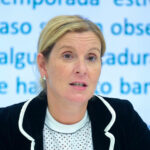 Mónica Pedreira Lanchas
Ecological Transition General Manager at Gipuzkoa Provincial Government
Mónica Pedreira Lanchas
Ecological Transition General Manager at Gipuzkoa Provincial Government
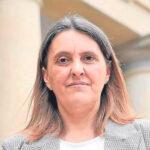 Mª José Madeira García
Environmental Director at Álava Provincial Government
Mª José Madeira García
Environmental Director at Álava Provincial Government
 Moderator:
Alexander Boto Bastegieta
General Manager of Ihobe, Environmental Management Agency. Basque Government
Moderator:
Alexander Boto Bastegieta
General Manager of Ihobe, Environmental Management Agency. Basque Government
Side event BRTA (E3-1)
E3-1

4th April 2025
9am - 10am
Room 0C
BRTA Ecoinnovation: Technological Challenges and Solutions for Industry
BRTA will present its research agenda in ecoinnovation, a collaborative roadmap of the centres of the alliance. The agenda sets out BRTA's main trends, opportunities and technologies around four key areas to advance towards a more circular productive model: recycling metals and critical materials, recycled and recyclable plastics, product value retention and the bioeconomy.
This side event will showcase the progress in two of these strategic lines: product value retention and the bioeconomy. The session will be on the identified opportunities, the technologies developed by the centre and the shared methodological approach that allows science and technology to be aligned with the needs of industry and sustainability.
PAPERS:
BRTA Ecoinnovation. Methodological Framework and Technological Areas at BRTA
Product Value Retention: Trends, Needs, Opportunities and Technologies
Bioeconomy. Methodology and Value Chains Developed
-
10:30am - 11:30am
Boosting clean technologies (PL3-1)
PL3-1

4th April 2025
10:30am – 11:30am
Room 0B
BOOSTING CLEAN TECHNOLOGIES
Technology is essential in order to accelerate the circular and climate transition in industry. Prioritising technologies that contribute to material efficiency, beyond the Best Available Techniques already defined by the European Union, is the first step towards their inclusion in the Clean Technology List, a tax instrument promoted by Ihobe, EVE and SPRI that offers a tax deduction of 30% of the investment cost of the equipment on the Corporate Tax quota.
The Basque List of Clean Technologies is aimed at both the business world and companies subject to corporate tax payable in the Basque Country. Their knowledge and application can bring about significant competitive and environmental advantages.
 Ioannis Retsoulis
Project & Scientific Officer - Sustainable Industry at the JRC of the European Commission
Ioannis Retsoulis
Project & Scientific Officer - Sustainable Industry at the JRC of the European Commission
 Amaia Lopez Iriondo
Occupational Health & Safety, Environment and Social Affairs Manager at ConfeBask
Amaia Lopez Iriondo
Occupational Health & Safety, Environment and Social Affairs Manager at ConfeBask
 Mikel Amundarain Leibar
General Manager of EVE, Basque Energy Board
Mikel Amundarain Leibar
General Manager of EVE, Basque Energy Board
 Patricia Tamés
Deputy General Manager at AFM Cluster for Advanced & Digital Manufacturing Technologies
Patricia Tamés
Deputy General Manager at AFM Cluster for Advanced & Digital Manufacturing Technologies
 Garbiñe Manterola
Knowledge transfer Manager at BRTA
Garbiñe Manterola
Knowledge transfer Manager at BRTA
 Moderator:
Ander Elgorriaga Kunze
Ecoinnovation Manager at Ihobe, the Basque Government's Public Environmental Management Agency
Moderator:
Ander Elgorriaga Kunze
Ecoinnovation Manager at Ihobe, the Basque Government's Public Environmental Management Agency
-
11:30am -12pm
Coffee break -
12:15pm -1:15pm
Artificial intelligence (AI) and circularity (PS3-4)
PS3-4

4th April 2025
12:15pm – 13:15pm
Room 0E
Artificial intelligence (AI) and circularity
Artificial intelligence (AI) is at the heart of the technologies that have led to the so-called "fourth industrial revolution". AI can complement people's skills and expand their capabilities. Combining AI with the other necessary major revolution, the circular economy, can accelerate the necessary change.
Improving knowledge on how to use AI to stimulate a circular economy will be essential to identify applications in areas such as circular design, operation of circular business models and optimisation of circular infrastructure. Ultimately, AI can be used in the complex task of redesigning entire networks and systems, such as new supply chains or optimising the global reverse logistics infrastructure.
 Elixabete Garcia Caballero
Director of Digital Transformation. Basque Government
Elixabete Garcia Caballero
Director of Digital Transformation. Basque Government
 Laura Marrón Merino
General Manager of the Basque Artificial Intelligence Center
Laura Marrón Merino
General Manager of the Basque Artificial Intelligence Center
 Juan Manuel Báñez Romero
Head of Brussels/EU Sustainability Policy at Amazon
Juan Manuel Báñez Romero
Head of Brussels/EU Sustainability Policy at Amazon
 Patricia Astrain
Founder and CEO at Recircular
Patricia Astrain
Founder and CEO at Recircular
 Damien Sallé
Robotics and Flexible Automation Coordinator at TECNALIA
Damien Sallé
Robotics and Flexible Automation Coordinator at TECNALIA
 Moderator:
José María Fernández Alcalá
Circular Economy Director at Ihobe, Environmental Management Agency. Basque Government
Moderator:
José María Fernández Alcalá
Circular Economy Director at Ihobe, Environmental Management Agency. Basque Government
Eco-innovation in materials efficiency (PS3-5)
PS3-5

4th April 2025
12:15pm – 1:15pm
Room 0D
Eco-innovation in materials efficiency
Metals, minerals, polymers and wood are among the most consumed materials in the Basque Country.
By analysing material flows and their degree of circularity, opportunities and possible risks can be detected. The former contrasts with the business and technology sector, showing potential synergies and opportunities in value chains aimed at increasing material productivity, taking into account the measures adopted by the European Union in the circular economy.
This session will analyse the different business opportunities detected by people with expert knowledge in the field.
 Jon Kepa Gerrikagoitia
BRTA Science and Technology Manager
Jon Kepa Gerrikagoitia
BRTA Science and Technology Manager
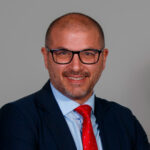 Asier San Millán
Managing Director at SIDEREX, Steel Industry Cluster Association
Asier San Millán
Managing Director at SIDEREX, Steel Industry Cluster Association
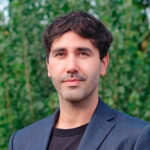 Sergio Sastre
Consultant, researcher and coordinator of projects on waste and the economy and environment at ENT medi ambient i gestió
Sergio Sastre
Consultant, researcher and coordinator of projects on waste and the economy and environment at ENT medi ambient i gestió
 José Luis Galvez Martos
Researcher at Tecnalia
José Luis Galvez Martos
Researcher at Tecnalia
 Aitor Arzuaga Munsuri
Alba - Petronor General Manager
Aitor Arzuaga Munsuri
Alba - Petronor General Manager
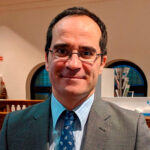 Jorge Fernández Gómez
Senior Researcher and Coordinator of the Energy and Environment Lab at Orkestra, Basque Institute of Competitiveness
Jorge Fernández Gómez
Senior Researcher and Coordinator of the Energy and Environment Lab at Orkestra, Basque Institute of Competitiveness
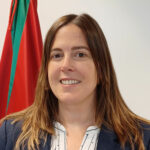 Nagore Peñalva Bengoa
Director of Circular Economy at the Basque Government
Nagore Peñalva Bengoa
Director of Circular Economy at the Basque Government
 Alberto Fernández
Director of Innovation of the Department of Industry, Energy Transition and Sustainability. Basque Government
Alberto Fernández
Director of Innovation of the Department of Industry, Energy Transition and Sustainability. Basque Government
Side event Tecnalia (E3-2)
E3-2

4th April 2025
12:15pm – 1:15pm
Room 0A
Tecnalia: Decarbonisation and Economic Development: The Potential of CO₂ Capture and Conversion in the Basque Country
This event will gather together experts and business leaders to explore the crucial role of CO₂ capture and conversion in the transition towards a low carbon economy in the Basque Country. The presentation followed by a discussion panel will offer a unique forum to discover the latest CCUS trends and developments, by going further into the innovative technologies and their practical application; The event will analyse the economic opportunities that can generate new businesses and jobs; discuss the key policies and strategies that drive their adoption to achieve the decarbonisation goals; foster collaboration and alliances between the different stakeholders to accelerate project development; and contribute to the debate on the future of decarbonisation in the Basque Country, by encouraging action-oriented and constructive dialogue.
PAPERS:
Presentation
Panel
 Diego Herrero
Innovation and Technology Corporate Director at the Tubacex Group
Diego Herrero
Innovation and Technology Corporate Director at the Tubacex Group
 Asier Ochoa de Eribe
Sustainability and Decarbonisation Director at Heidelberg Materials
Asier Ochoa de Eribe
Sustainability and Decarbonisation Director at Heidelberg Materials
 Ángela Fernández Alonso
Agaleus Managing Director
Ángela Fernández Alonso
Agaleus Managing Director
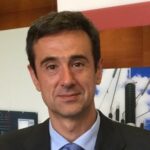 Txetxu Arzuaga
Technical Director at Alba Emission Free Energy
Txetxu Arzuaga
Technical Director at Alba Emission Free Energy
Q&A and Closing
-
1:15pm
End of sessions -
1:15pm - 2:15pm
Networking lunch
Final list of Side Events
The entities that form part of the Basque Circular VILLAGE will have the possibility of organising one of these parallel events, through the application form, indicating the objective of the session, potential participants and target audience.
Once the requests have been evaluated, Ihobe will notify the parallel sessions that have finally been approved and they will be integrated and published in the official congress programme in due course.
The development of side events is restricted to entities present in the Basque Circular VILLAGE.
